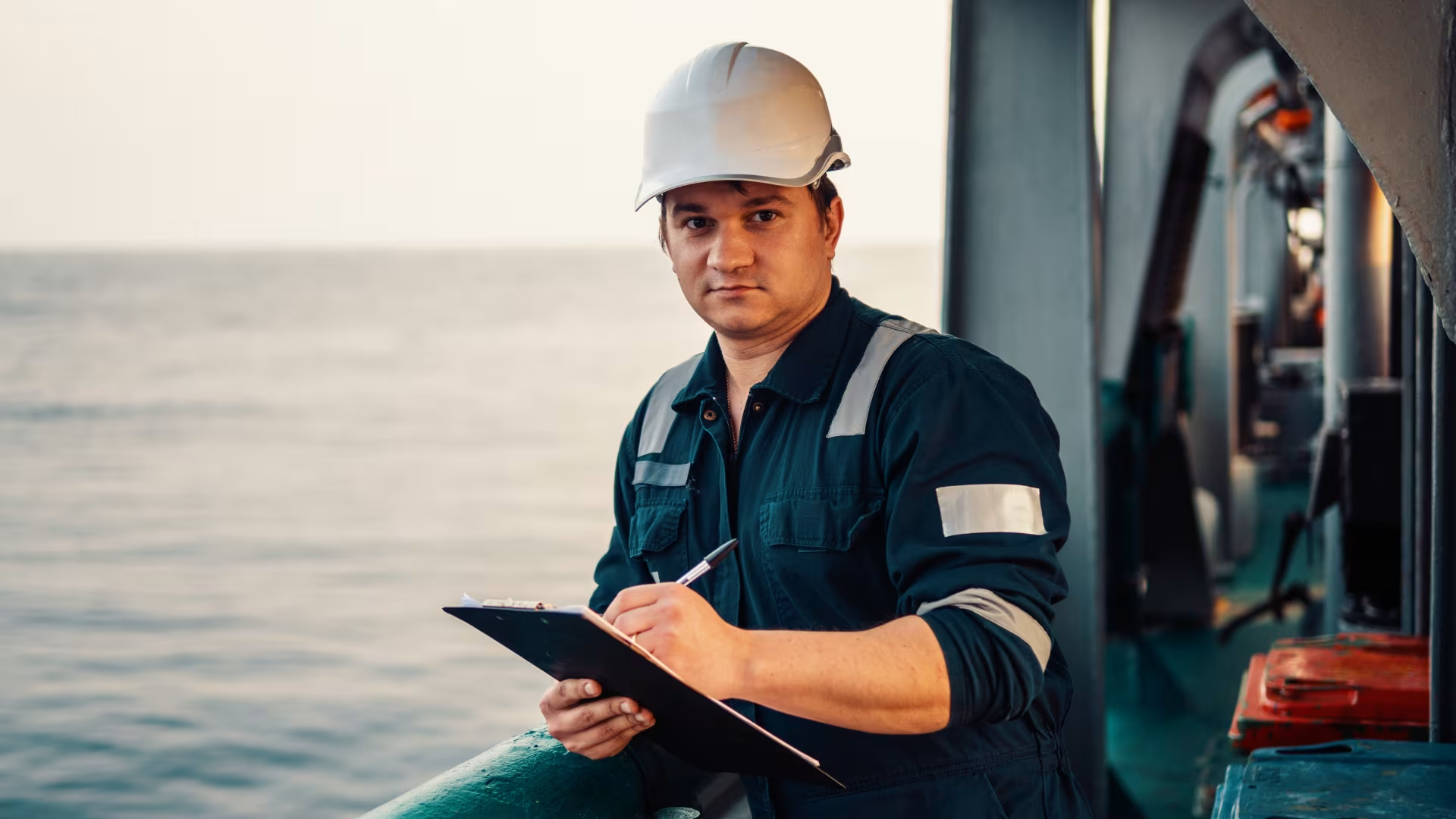

Life on board a ship is quite different from any other career or organization on land. In order to keep the vessel's operations running smoothly, each crew member has a specific rank and responsibilities.
A vessel's ranks are classified into three categories:
The ship's highest responsible officer, operating on behalf of the ship's the owner/operator or manager, is the Captain or Master. The Captain/Master is legally accountable for the ship's daily operations. It is his/her obligation to guarantee that all departments comply with the ship's owner/operator/requirements manager in a lawful manner. The master is assisted by multiple deck officers on the ship.
While the ship is traveling in confined waters, such as narrow or shallow channels, the master frequently consults with the pilots. In addition, the master has a designated head for each shipboard department. A Chief Officer is in charge of the deck department. A Chief Engineer is in charge of the engine department. He has several licensed engineers to help him with engine room monitoring and maintenance and repair duties.
The catering section is led by the Chief Steward. He supports the captain with procedures such as enrollment (entry into a port) and disembarkation (departure from a port) as well as other administrative duties.
He will also be in charge of ordering and managing the delivery of groceries, galley supply and distribution, crew wages, and other items in ports. The above jobs, as well as their amount of involvement, will differ depending on the ship type.
The deck department is managed by the Chief Officer, commonly known as Chief Mate or First Mate. He is the ship's second-in-command after the master. The vessel's cargo activities, stability, and deck crew supervision are the Chief Officer's key tasks. The Chief Officer is in charge of the ship's safety and security, as well as the well-being of the crew.
During a navigation watch, the Chief Officer usually stands for 4-8 hours. Other responsibilities include maintaining the ship's hull, cargo gears, accommodations, and lifesaving and firefighting equipment. The Chief Officer also instructs the crew and cadets on topics such as safety, firefighting, search and rescue, and other emergency procedures.
With a rank below Chief Officer and above Third Officer, the Second Officer, also known as Second Mate, is normally in charge of ship navigation. After the Master and Chief Officer, he/she is the third-in-command. During the day, the second officer keeps watch from 1200 to 1600, and at night, from 0000 to 0400.
The third officer, sometimes known as the 3rd Mate, is primarily responsible for the ship's and crew's safety. The ship's chief safety officer is usually the third officer. As fourth-in-command, the Third Officer is the next authorized position on board the vessel.
During the course of their duties, the Deck Crew must: Report any near misses, unsafe work practices, or injuries to the Chief Mate; comply with all PPE requirements and other controls as specified by the SMS system; and maintain awareness of his or her emergency responsibilities while onboard the vessel.
On ships, engineers are referred to as technical officers. They are in charge of keeping the machinery in good working order. Ships today are complicated systems that pack a lot of technology into a small area. This includes not only the engines and drive system, but also the electrical power supply, loading and unloading systems, rubbish incineration, and freshwater sources, among other things.
Onboard ships are also increasingly employing environmental protection technologies, fuel treatment systems, and cargo conditioning devices. Engine department personnel are in charge of maintaining all of these.
The Chief Engineer is responsible for ensuring that the company's Safety Management System is followed at all times, in compliance with the ISM code. The Chief Engineer is in charge of ensuring that his employees are aware of the company's Quality, Health, Safety, and Environmental Policy, as well as safety regulations and applicable legislation, and that compliance is maintained throughout his area of responsibility. A "chief's ticket" is the shorthand for the required qualifications for this post.
The Second Engineer is the officer in charge of overseeing the engineering systems' daily maintenance and operation. He or she is directly responsible to the Chief Engineer. After the ship's Chief Engineer, the Second Engineer is in charge of the engine section. Due to the supervisory function this engineer performs and the operations activities completed, this engineer is usually the busiest engineer onboard the ship. The refrigeration systems, main engines, and any other equipment not allocated to the third or fourth engineers are among the operational responsibilities.
In the engine department, the third engineer is normally in charge of boilers, fuel, auxiliary engines, condensate, and feed systems, and reports to the second engineer. If the officer has a valid certificate for fuel transfer operations, this engineer is usually in charge of bunkering.
In the engine department, the Fourth Engineer is the junior engineer to the third engineer. Electrical, sewage treatment, lubricating oil, bilge, and oily water separation systems are normally the responsibility of the ship's most junior marine engineer. This person usually wears a watch, depending on the situation. In addition, the fourth engineer may assist the third officer in maintaining the proper operation of the lifeboats.
In a ship's steward's department, the chief cook is the most senior unlicensed crew member. Their job entails preparing meals on a regular basis for the crew and passengers, as well as inspecting the galley and equipment to ensure that all cleaning and storage procedures are followed.
This job is in charge of the catering department, which includes leading, instructing, and assigning workers to prepare and serve meals. In addition, this position, along with the Master, plans the menu and orders the supplies.
The deck department structure on commerce ships is largely the same across all vessel types.